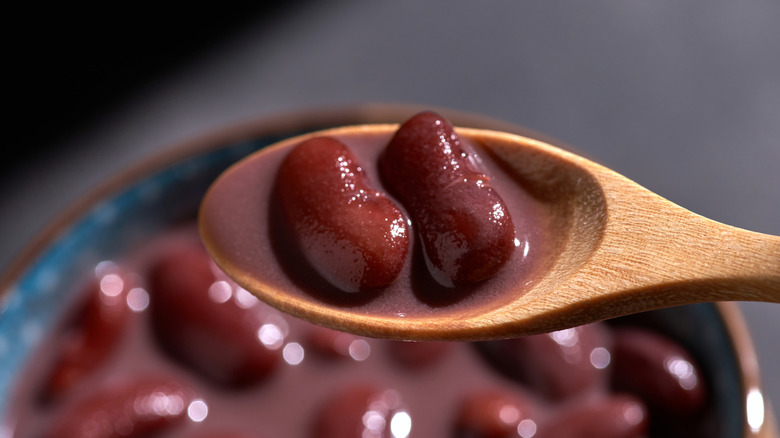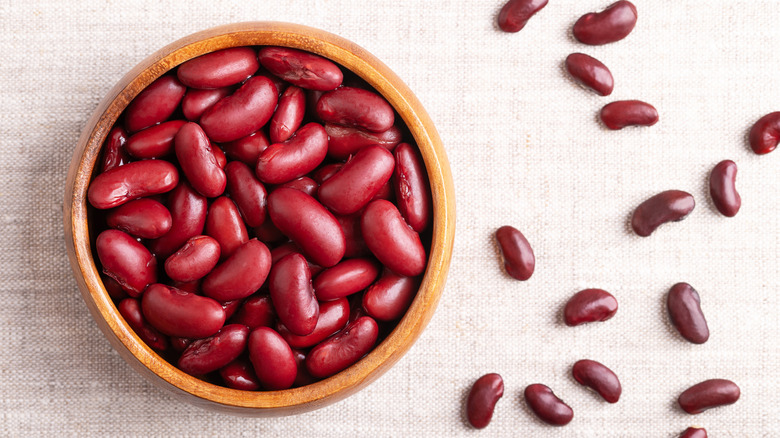Wait, Red Kidney Beans Are Toxic?
Beans are a popular ingredient to cook with and are used in many dishes. Most often used in cuisines with Latin American, Middle Eastern, Indian, and African-inspired influences, they can complement dishes packed with flavor and aroma. While beans give off an earthy, nutty taste of their own, they can easily take on the flavors of other ingredients they're paired with. In retrospect, we've all been under the impression that beans are nutritious and safe to eat, but that's not always the case when it comes to kidney beans.
Like other beans, kidney beans contain healthy proteins, minerals, and vitamins and are easy and affordable to prepare. While people often avoid eating beans raw or uncooked for obvious reasons, there's even more added pressure to ensure kidney beans are thoroughly cooked before consumption. Less than a handful of them can be toxic to the human body due to a protein called lectin phytohaemagglutinin. This protein is found in many legumes, but kidney beans, by far, contain the highest amount.
The side effects of eating raw kidney beans
As mentioned, consuming only a small amount of kidney beans can be highly harmful and cause extreme side effects no one wants to experience. If a person were to eat them raw, even accompanied by other ingredients, it would more than likely result in your body reacting. The side effects take little to no time at all, as nausea and diarrhea can kick in within three hours of consuming them.
Side effects can stick around for a long period of time after a person has consumed the kidney beans. Alarmingly, people have needed to seek hospitalization in extreme cases for this error. So, the next time you make chili or soup, ensure you're rinsing the kidney beans thoroughly and that they're properly cooked. A sure sign to look for is when they're tender to the touch and a bit mushy.

